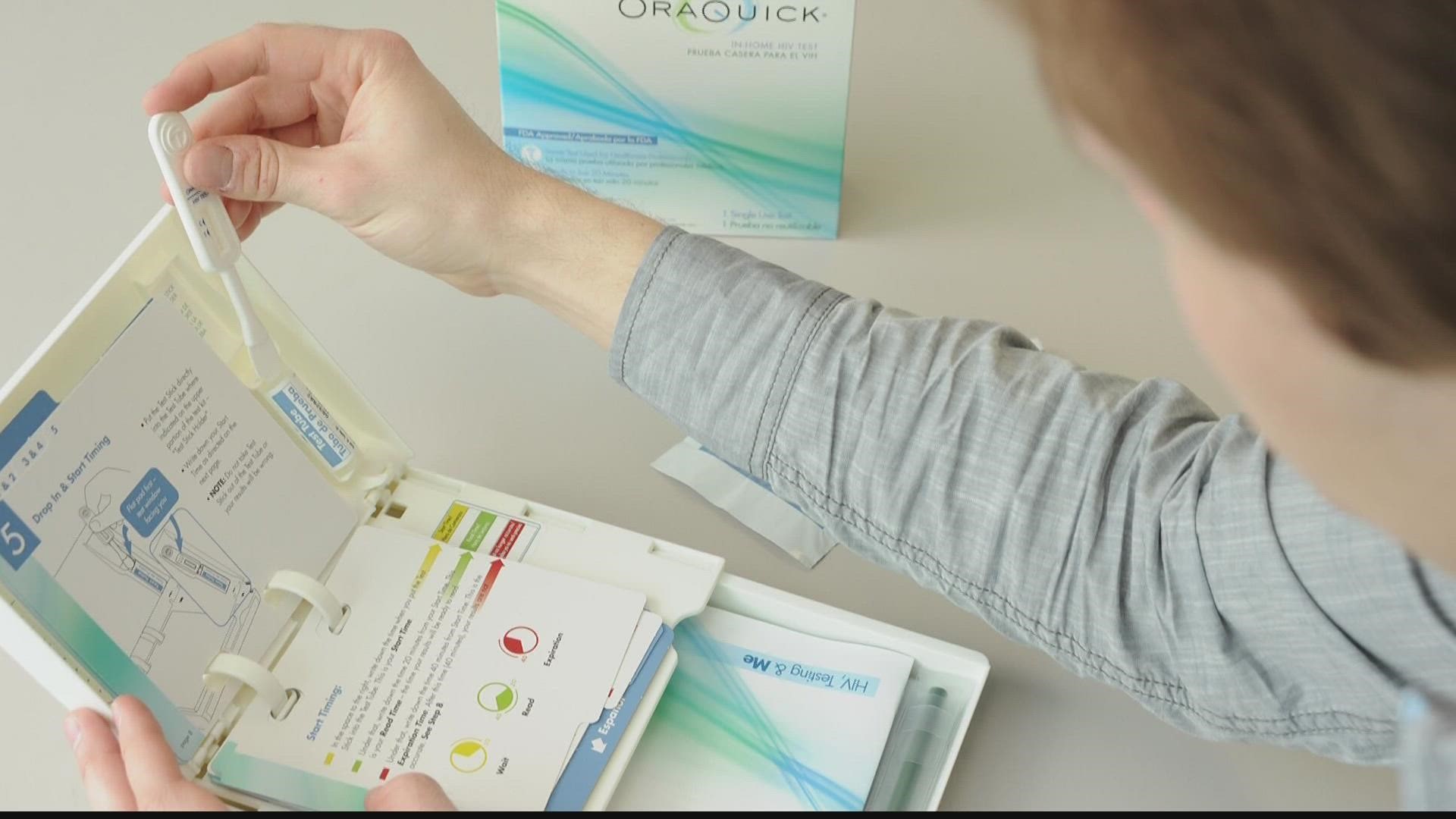ATLANTA — Emory University is preparing to lead a program mailing out free HIV self-test kits nationwide.
The effort is being funded by a recent $8.3 million award from the CDC that will support sending 1 million tests out over a five-year period starting this spring.
According to the university, its program -- called Together TakeMeHome (TTMH) -- will be the largest HIV self-testing program of its kind in U.S. history.
In 2020 through 2021, Emory led a similar program on a smaller scale and some local and state health departments have led HIV test kit programs in the past, Dr. Travis Sanchez with Emory University's Rollins School of Public Health and the test kit program's executive director said.
"This is really about increasing the scale up to this nationwide distribution, not just having it in some states and not others, but really for anyone, anywhere living in the United States to have access to these tests," Sanchez said.
On the surface, the program and tests appear similar to free COVID-19 tests sent to mailboxes around the country by the federal government. People will be able to go online, enter their address and place an order for two tests at a time. Details of how frequently people will be able to place orders are still being finalized.
They will then receive the tests, along with instructions, and have test results within approximately 20 minutes. Unlike COVID-19 tests, the HIV tests require a mouth swab instead of the uncomfortable nasal swab.
Sanchez said a main difference though is COVID-19 tests are meant to be used after someone is exposed to that virus or begins showing symptoms. He believes HIV tests should be available so people can test routinely, not in reaction to exposure.
In the previous test kit program in 2020, CDC data showed that 36 percent of that program's participants had never been tested for HIV, but some then sought further HIV prevention or treatment based on their results.
"So this is an entry into this routine testing pattern with really the ultimate goal of trying to have people thinking about HIV testing as a routine part of their healthcare," Sanchez said.
The CDC recommends everyone between the ages of 13 and 64 should be tested for HIV at least once as part of routine healthcare. People with increased risk factors should be tested annually, and sexually active gay or bisexual men could benefit from testing every three to six months.
The tests that will be sent out are from OraQuick and have been used for several years. FDA data shows they have an expected performance of 99.98%, meaning there is only one false positive out of every 5,000 tests.
Data in 2020 found Georgia had one of the highest rates of new HIV diagnoses with a rate of 22 cases per 100,000 people - a total trailing only Washington D.C.
Sanchez believes making testing easily available and at-home addresses several issues with current HIV testing accessibility.
"So for a lot of people it is the uncertainty, it is concern around the stigma," Sanchez said. "It is potentially even the physical access to facilities that are offering testing or offering testing at times and places that are convenient for them, so this helps to fill in some of that gap."

